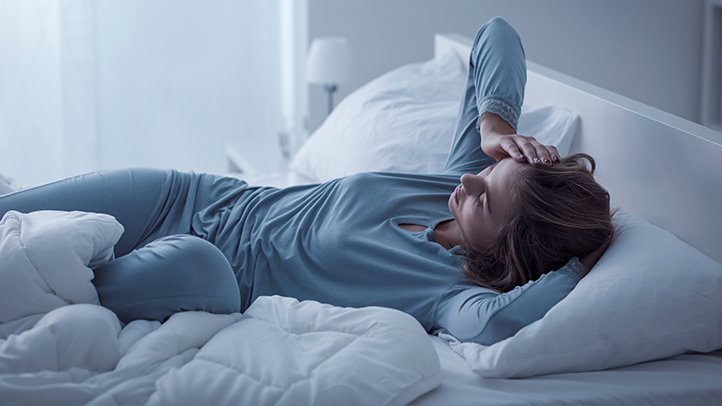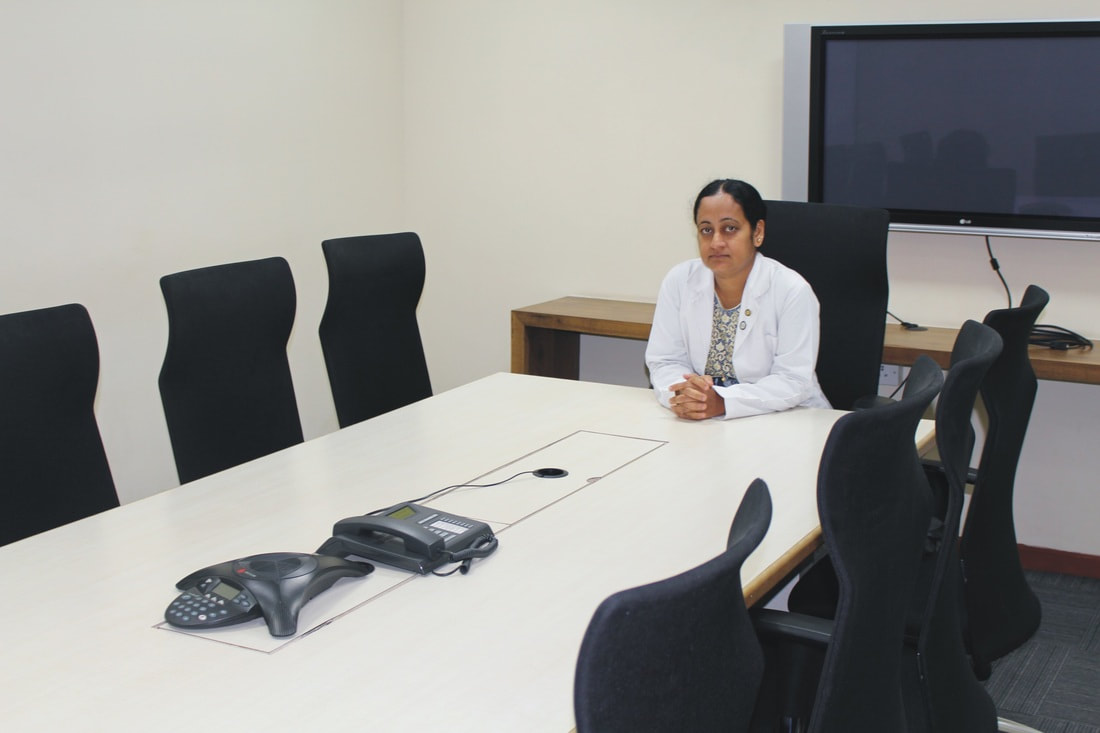|
Sleep is a blessing that’s not bestowed on many of us. Kids hate to sleep, adolescents are in love with sleep, middle-aged people don’t have enough time for sleep while elderly struggle to get some quality sleep. Sleep is a neurochemical process that involves sleep-promoting and arousal centres in the brain and is indispensable for brain energy restoration, memory consolidation, information processing and brain metabolite clearance. All these functions together determine our brain development, physical and mental health and cognitive abilities. Sleep is essentially divided into two important states namely the rapid eye movement (REM) and non-rapid eye movement (NREM) between which every human alternate throughout the night. It has been well-established that the common civilian suffers from sleep-related problems and there is no doubt that sleep quality is of dire concern for military people too. A cross-sectional study on 156 US Air Force Airmen revealed that at least 40% of them suffered from sleep disturbance and at least 75% of them complained of decreased sleep quality while deployed compared to their sleep quality at home. There are other studies which come up with similar results. Though we do offer solutions in the form of medications such as zolpidem they do have side-effects including cognitive impairment that prevents individuals from relying on them for support. Delayed sleep-wake phase disorder (DSWPD) is a sleep disorder that prevents the individual from sleeping and waking up at a stipulated time to go to school, work or college primarily due to chronic sleep restrictions and adverse mental health, financial, economic and social outcomes. So, what can replace these unreliable meds without any side effects in all of these situations? The answer could be melatonin.
Gratifying Sleep with Melatonin Suffering from cold or mild fever? Its time for Crocin. Just like how Crocin and any Paracetamol has become synonymous with fever/cold people these days have started using melatonin as sleep-promoting pills for people suffering from sleep-related problems, jet lag issues, rotational shift work and to balance circadian rhythm due to odd-hour jobs/travel. Melatonin plays a bigger role in regulating the body’s sleep-wake cycle. There are studies that show that using melatonin supplements increase the individual’s inclination to sleep but does not act as an effective prescription sleep medication. We need studies to prove that melatonin could be an effective aid for promoting sleep and discussed below is a systematic review that takes tries to explore the effectiveness of melatonin, assess its safety and realize the possibility of using it as a treatment plan for those suffering from sleep-related disorders. Systematic Review of Randomized Control Trials Databases such as PubMed, MEDLINE, Embase and Agricola were searched for Randomized Control Trials (RCTs) that dealt with melatonin use and healthy sleep behaviour in individuals. Only those RCTs that met certain criteria such as including adult humans, healthy military or non-military population or populations diagnosed with insomnia, use of melatonin as intervention and had at least one sleep outcome of interest such as sleep latency, sleep quality and sleep duration were included. Three reviewers reviewed all the articles and extracted descriptive data such as population description, sample size, melatonin and control interventions and dosages. The subject matter experts (SMEs) analysed each RCT to find out 1. The confidence level in the estimate of the effect, 2. Determine magnitude of the effect size overall, 3. Assign a safety grade to the literature and 4. Develop recommendations for melatonin literature based on REAL results for overall literature pool of studies for every category. After imposing all eligibility criteria, the researchers were left with 35 RCTs that include a total of 2,356 subjects. All the studies were categorized based on their intended use:
8 RCTS that included 300 participants analysed the efficiency of melatonin in promoting sleep in shift workers but could not come to any conclusive results. Another 8 RCTs including 972 participants tested melatonin use on counteracting jet lag-one study neither favoured the melatonin group nor the control group, six studies favoured melatonin and one other study showed that melatonin increased tiredness the next morning. 4 studies including 845 participants tested the efficiency of melatonin in promoting better sleep in people with insomnia. Of the 4, 2 of them neither favoured melatonin nor controls and the remaining two studies favoured melatonin use. The SMEs did not provide great recommendations in using melatonin as a solution for promoting sleep in persons with insomnia. 15 RCTs with a total of 223 participants looked into the use of melatonin for promoting sleep in healthy volunteers. Of the 15, 3 were of poor quality and 12 were high-quality studies. Two of the three poor-quality studies favoured melatonin while the last one did not favour either groups. 8 of the 12 high-quality studies favoured melatonin use while the other 4 did not show beneficial effects of both the melatonin and the control group. 7 studies looked into the efficiency of melatonin on initiating sleep quality and of them 6 of them were of high-quality. 5 of these 6 high-quality studies displayed results in favour of melatonin. 4 of the 5 studies that looked into the effect of melatonin on daytime sleepiness showed results supporting the use of melatonin. All the studies dispensed different quantities of melatonin ranging between 0.3 to 10.0 mg/day with all of them except two using capsules. Role of Melatonin as a Regulator of Circadian Clock & Insomnia Insomnia, primary due to environmental, social and occupational cause includes difficulty falling asleep or maintaining sleep for at least 1 month that manifests as daytime distress or impaired social, occupational and other areas of functioning. It has been evident that melatonin production decreases with age and the link between increasing age, declining melatonin production and increasing insomnia prevalence has paved way for ‘melatonin replacement’ hypothesis which shows that replacing the lost hormone levels can improve sleep. A meta-analysis looking into the effectiveness of melatonin in both normal people and those suffering from insomnia showed significant reduction of sleep onset latency following immediate release (IR) melatonin consumption but the same did not improve any other aspect of sleep quantity. Placebo-controlled trials that used a prolonged-release melatonin (PRM) formulation addressed the efficiency and safety of melatonin replacement therapy for insomnia in patients aged 55 and above. Results showed that PRM helped in improving sleep quality and shortening sleep latency thereby improving quality of life. A 10-year follow up on 20,432 men and women aged 20-65 years with no history of cardiovascular disease showed that poor sleep quality increased the risk of cardiovascular and coronary heart disease; decreased slow wave sleep (SWS) increases the risk of hypertension by almost 2-folds and the circadian rhythm of BP is blunted in patients with insomnia. It has been shown that an impaired melatonin production has been observed in all these patients and melatonin deficiency alone or in combination with poor sleep quality might be related to an impaired nocturnal BP fall. Studies show that melatonin improves sleep in hypertensive patients with sleep disorders. Efficiency of Melatonin on DSWPD Patients A double-blind, randomized control trial was followed in the delayed sleep on melatonin (DelSoM) study in which the participants were males and females aged between 16 and 65 years with a BMI between 18 and 35. All the participants suffered from DSWPD and participants were classified as having a delayed circadian phase angle if the DLMO occurred within 30 minutes before their reported desired bedtime (DBT) or any time after DBT. Individuals with DLMO occurring up to 30 min before DBT were classified as having circadian delay. Those individuals with circadian delay were randomly segregated into the placebo or intervention group (0.5 mg fast-released melatonin). The participants were given 28 medication capsules and advised to take the capsule at the same time daily 1 hour before their fixed DBT and also try to sleep at their DBT daily for at least 5 consecutive nights of every 7 nights for 4 consecutive weeks. Sleep-wake monitoring continued with sleep diaries and all the participants continued to note down their daily work schedules. Sleep diary reports of bedtime, sleep offset time, sleep onset latency (SOL) and wake after sleep onset (WASO) was used to calculate the subjective sleep variables of time in bed (TIB), sleep onset time, total sleep time (TST) and SE (calculated between sleep onset and sleep offset). A total of 307 patients were included in the study of which 187 attended the laboratory-based circadian phase assessment and 116 were randomized to treatment. 186 completed the circadian phase assessment but 62 of them did not have circadian misalignment between DLMO and DBT and hence, were excluded from the trial. The study was left with 104 patients in the completed treatment analysis. The total number of nights for which the patients followed the treatment plan did not differ between the groups and neither was there any change in circadian timing of scheduled treatment. Going to bed early in the placebo group was linked to longer SOL and lower SE and this improved with melatonin treatment. Compared to placebo group, the melatonin group had 44-min earlier subjective and 34-min earlier actigraphic sleep onset time, 38-min-earlier subjective sleep offset time, 3% higher SE for the entire sleep episode and 5.14% higher SE T1. Post hoc analysis of all nights of the treatment period showed the melatonin group had a 29-min earlier sleep onset time and 4.37% greater SE T1 compared to the placebo group. Sensitivity analyses (including only those nights when the subjects took treatment) showed that compared to the placebo group, the melatonin group had earlier actigraphic sleep onset time, higher SE T1, shorter subjective and objective SOL, earlier subjective sleep onset and offset time and higher actigraphic SE for the entire sleep episode. The research showed that short-term, low-dose melatonin administration in a treatment protocol with behavioural sleep-wake scheduling is an effective and safe treatment for DSWPD patients suffering from circadian misalignment and the treatment paved way for improved sleep quality and overall functioning. References The Effectiveness of Melatonin for Promoting Healthy Sleep: A Rapid Evidence Assessment of the Literature: https://nutritionj.biomedcentral.com/articles/10.1186/1475-2891-13-106 New Perspective on the Role of Melatonin in Human Sleep, Circadian Rhythms & their Regulation: https://www.ncbi.nlm.nih.gov/pmc/articles/PMC6057895/ Efficiency of Melatonin with Behavioural Sleep-wake Scheduling for Delayed Sleep-wake Phase Disorders: A Double-blind, Randomized Clinical Trial: https://journals.plos.org/plosmedicine/article?id=10.1371/journal.pmed.1002587 Comments are closed.
|
AVOID FRAUD. EAT SMART+91 7846 800 800
|
- Home
- Written Testimonials
- Consult
- Clinics
- Blogs
-
Diet & Nutrition
- Diabetes Reversal
- IVF IUI not needed for PCOS PCOD Infertility
-
Medical Nutrition
>
-
Disease & Conditions
>
- Infertility | PCOS
- Diabetes Mellitus
- Cholesterol
- Hypothyroid
- Kidney Problems
- Hypertension
- Cardiovascular Diseases
- Liver Diseases
- Gastro intestinal disorder
- Cancer
- Metabolic Disorders
- Orthopedic Disorders
- Eating Disorders
- Dietary Recall
- Weight Record Filled By Clients
- Online Payment Transaction Details
- Online Clients Weight Check Form
- Our Program Package Service Charges
- Weight Record 2017 Clients
- Measurements sent by Clients
- Terms & Conditions Of Payment
- Thanks. Your Form is Submitted
- Video Testimonials
- Lifestyle & Wellness
- Lifestyle & Wellness Blog
- Allergy & Intolerance
- Weight Loss / Gain
- Weight Loss / Slimming Blog
-
Disease & Conditions
>
- Life Cycle Nutrition >
- Sports Nutrition >
- Integrity in Nutrition
- Knowledge Centre
© COPYRIGHT 2022. ALL RIGHTS RESERVED. FRST HEALTHCARE PVT LTD.
Dr. Nafeesa Imteyaz of First Eat Right clinic, is the Best Dietitian Nutritionist in Bangalore. Best Dietitian Nutritionist in Pune. Best Dietitian Nutritionist in Hyderabad. Best Dietitian Nutritionist in Chennai. Best Dietitian Nutritionist in Mumbai. Best Dietitian Nutritionist in Delhi. Best Dietitian Nutritionist in Kolkata.



